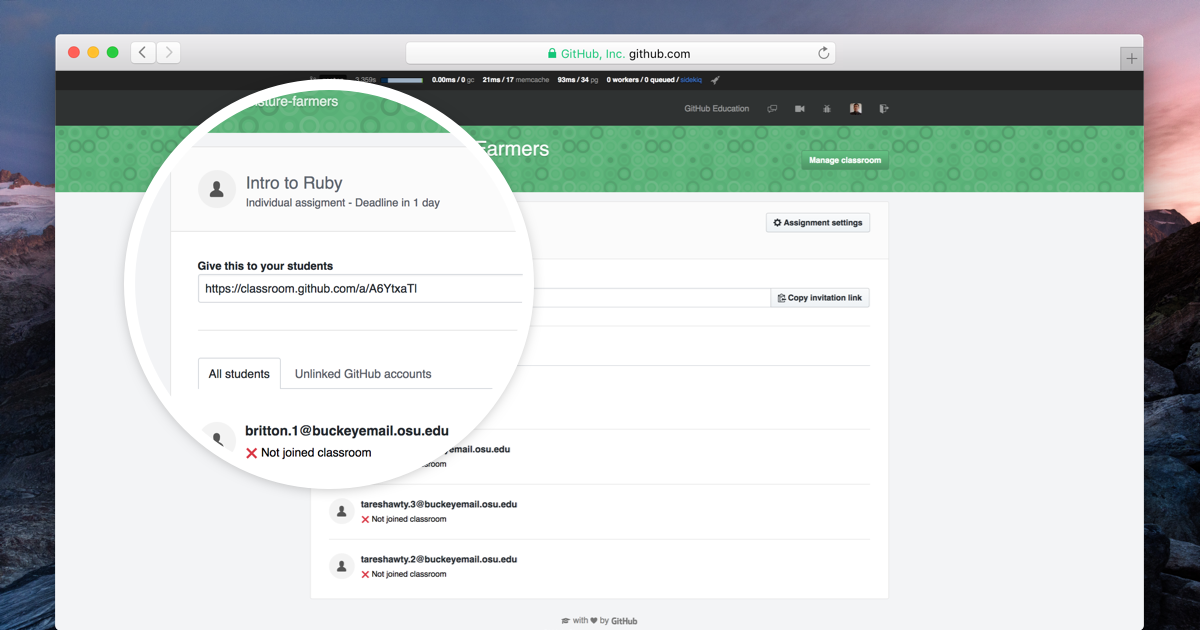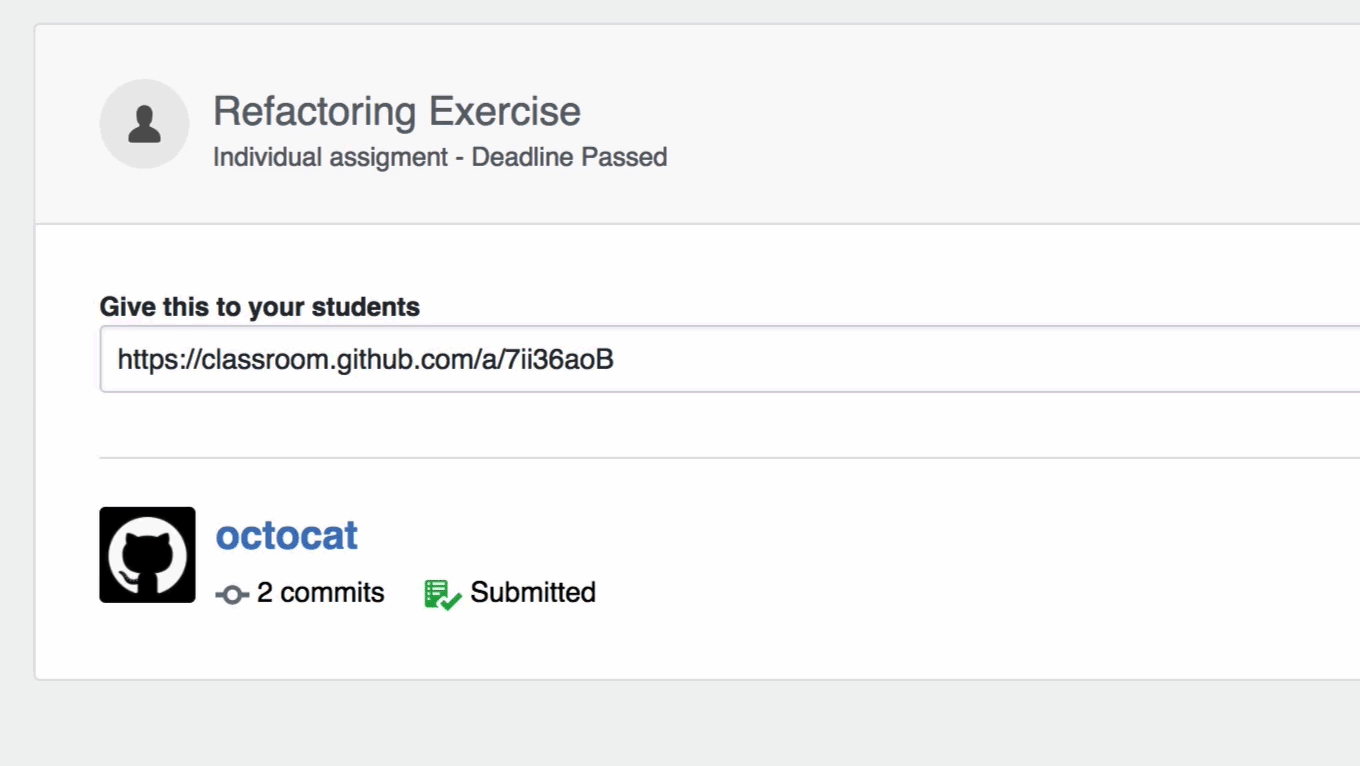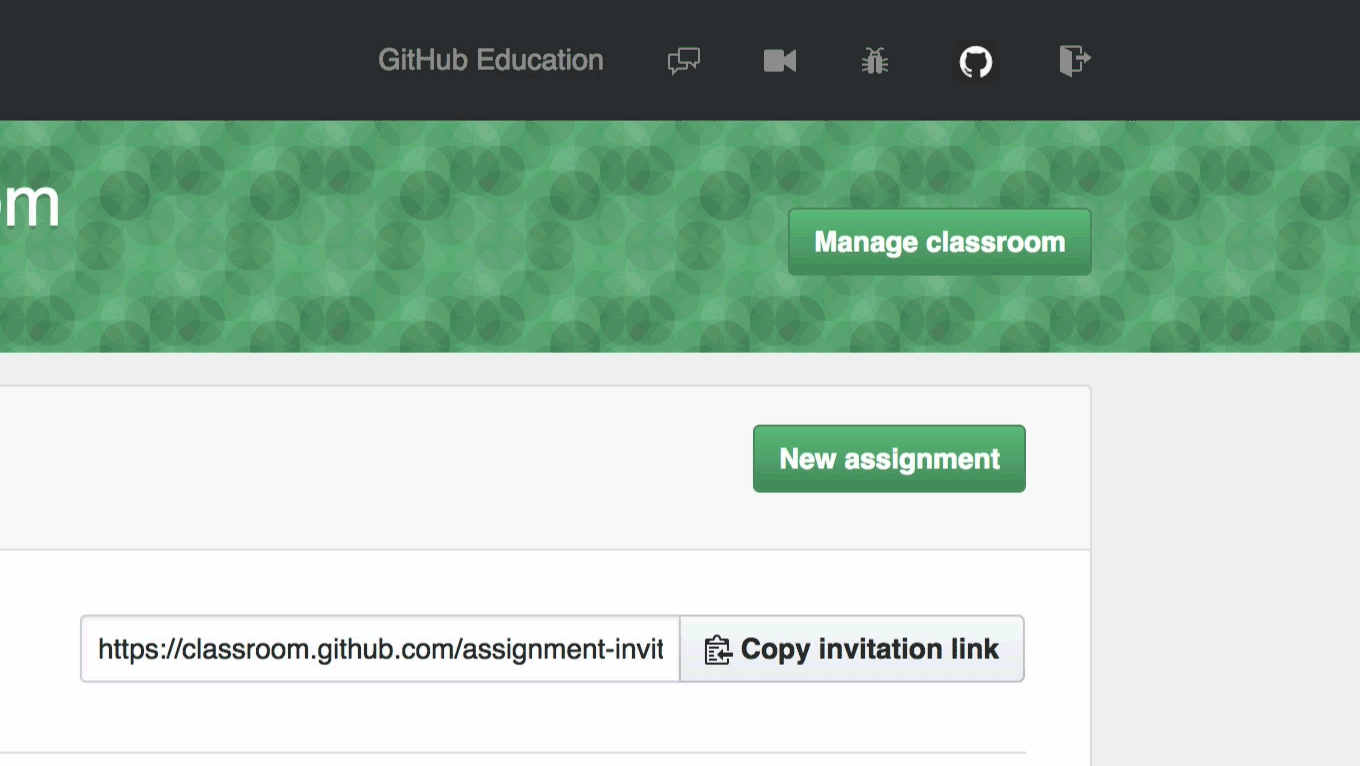GitHub Classroom now supports deadlines and class rosters
Nathaniel Woodthorpe spent his summer as an Engineering Intern working on GitHub Classroom alongside the Education Team. In this post, he’ll share the features and updates he worked on for…
Nathaniel Woodthorpe spent his summer as an Engineering Intern working on GitHub Classroom alongside the Education Team. In this post, he’ll share the features and updates he worked on for thousands of teachers and students.
Teachers can now use GitHub Classroom to set deadlines, track student accounts, and more. Here’s how to use these features in your course and set them up for the first day of class.

Insight into student progress with deadlines
Track student progress leading up to a due date with assignment deadlines. Deadlines fetch the latest commit SHA on the default branch at the time of the deadline, and displays this to the teacher as a “submission”.

If students try to modify previous work, they’ll also modify this SHA on GitHub. The submission SHA professors have will then become invalid, alerting them to the changes.
Want students to keep working for partial credit? In this solution, students can work after a deadline. Adding commits on top of an SHA doesn’t modify its base.
Easier course set up with Classroom rosters
Classroom rosters provide teachers with a snapshot of course activity at a high level, and an easier way to connect student names with GitHub usernames.

When a teacher creates a classroom, they have the option of entering student information—email addresses, student numbers, or any other identifying piece of information.
If they haven’t already, students can add their personal or contact information when accepting a Classroom invitation, creating a link between their work and their online identities.
And a few more improvements
In addition to these two features, we’ve shipped some exciting updates this summer. Classroom now has short URLs for assignment invitations, improved assignment views, DataDog instrumentation, and new performance improvements.
Summer internships at GitHub
At GitHub, I got to help improve Classroom and grew as an engineer in the process. Thanks @johndbritton, @tarebyte, @mozzadrella—and everyone else who mentored and worked closely with me.
In two months, I’ll start at GitHub as a full-time Platform Engineer. Though I’ll be on another team, I’ll continue to help shape Classroom into an even better experience for the thousands of students and teachers who use it.
Want to build great things together next summer? Applications are opening soon for summer 2018 internships in engineering, data science, marketing, and more.
Written by
Related posts

The future of AI-powered software optimization (and how it can help your team)
We envision the future of AI-enabled tooling to look like near-effortless engineering for sustainability. We call it Continuous Efficiency.

Let’s talk about GitHub Actions
A look at how we rebuilt GitHub Actions’ core architecture and shipped long-requested upgrades to improve performance, workflow flexibility, reliability, and everyday developer experience.

GitHub Availability Report: November 2025
In November, we experienced three incidents that resulted in degraded performance across GitHub services.